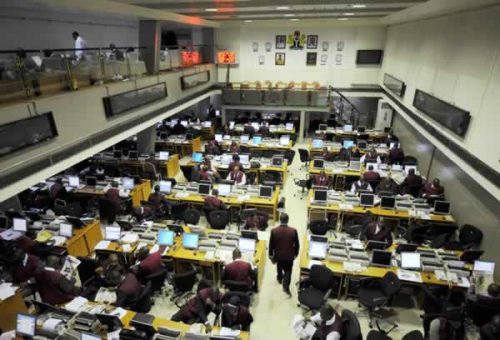The Nigerian Stock Exchange (NSE) experienced a downturn on Tuesday, reversing the positive momentum from the previous day. Investors saw a significant erosion of value, with the market capitalization shedding N152 billion, a stark contrast to the N37 billion gain recorded on Monday. This decline pushed the All-Share Index (ASI) down by 0.24%, settling at 103,398.82 points. While the year-to-date gains remained marginally positive at 0.46%, the Tuesday downturn resulted in a week-to-date loss of 0.18% and a month-to-date stagnation at 0.46%, highlighting the volatility of the market. Overall trading activity involved 1.11 billion shares worth N14.64 billion exchanged across 16,617 deals. This substantial trading volume underscores the dynamic nature of the NSE and the significant participation of investors despite the prevailing negative sentiment.
The market breadth, a key indicator of overall market sentiment, closed negative with 19 gainers against 51 losers. This disparity signifies a broader bearish trend, suggesting that a larger number of stocks experienced price declines compared to those that appreciated. This imbalance further reinforces the negative sentiment prevailing in the market. PZ Cussons Nigeria Plc and Abbey Mortgage Bank Plc emerged as the day’s top gainers, both recording a 10% increase in their share prices. Learn Africa Plc and NCR Nigeria Plc also saw significant gains, posting increases of 9.90% and 9.77% respectively. NGX Group Plc rounded out the top five gainers with a 9.72% appreciation. These gains, however, were overshadowed by the broader market decline.
Conversely, FTN Cocoa Processors Plc and RT Briscoe Nigeria Plc led the decliners, both experiencing a 10% drop in their share prices. Veritas Kapital Assurance Plc also suffered a 10% decline, while SUNU Assurances Nigeria Plc and Cornerstone Insurance Plc trailed closely behind with losses of 9.98% each. The significant losses experienced by these companies further contributed to the overall negative performance of the market. The substantial decline in share prices across various sectors suggests a possible combination of factors influencing investor behavior, including prevailing economic conditions and company-specific performance concerns.
Trading activity was dominated by FBN Holdings Plc, leading both in volume and value. The financial institution saw 161,459,871 units of its shares traded across 395 deals, amounting to a total value of N4.72 billion. AIICO Insurance Plc followed in terms of volume, with 120,702,526 units traded, while Tantalizers Plc, Universal Insurance Plc, and Regal Insurance Plc also witnessed considerable trading activity. In terms of value, Access Holdings Plc and Guaranty Trust Holding Company Plc trailed FBN Holdings Plc, recording transactions worth N1.20 billion and N1.17 billion respectively. Oando Plc and Presco Plc rounded out the top five in terms of value traded. The high trading volume and value for these companies reflect their significant market presence and investor interest.
Analyzing the performance of various sector-specific indices reveals a mixed picture. The Top 30 Index, representing the top 30 companies listed on the NSE, declined marginally by 0.13%, while the Industrial Index remained flat. The Oil & Gas Index experienced a slight dip of 0.1%, continuing its year-to-date decline. The Pension Index also declined by 0.2%, despite positive week-to-date and year-to-date gains. The Main Board Index, representing the broader market, dropped by 0.2%, while the Premium Index, comprising the most liquid and capitalized stocks, declined by 0.33%. These varying performances across different sectors suggest the influence of sector-specific factors on investor sentiment and trading activity.
In summary, the Tuesday trading session on the Nigerian Stock Exchange was marked by a significant downturn, reversing the previous day’s gains. While a few companies recorded notable price increases, the overall market sentiment was bearish, evidenced by the negative market breadth and the decline in the All-Share Index. The substantial trading activity, particularly in financial and insurance stocks, highlights the dynamic nature of the market and continued investor engagement. The varying performance of sectoral indices suggests the influence of sector-specific factors, underscoring the complex interplay of forces shaping the Nigerian stock market. This daily fluctuation underscores the inherent volatility in the market and the need for investors to exercise caution and conduct thorough due diligence before making investment decisions.


